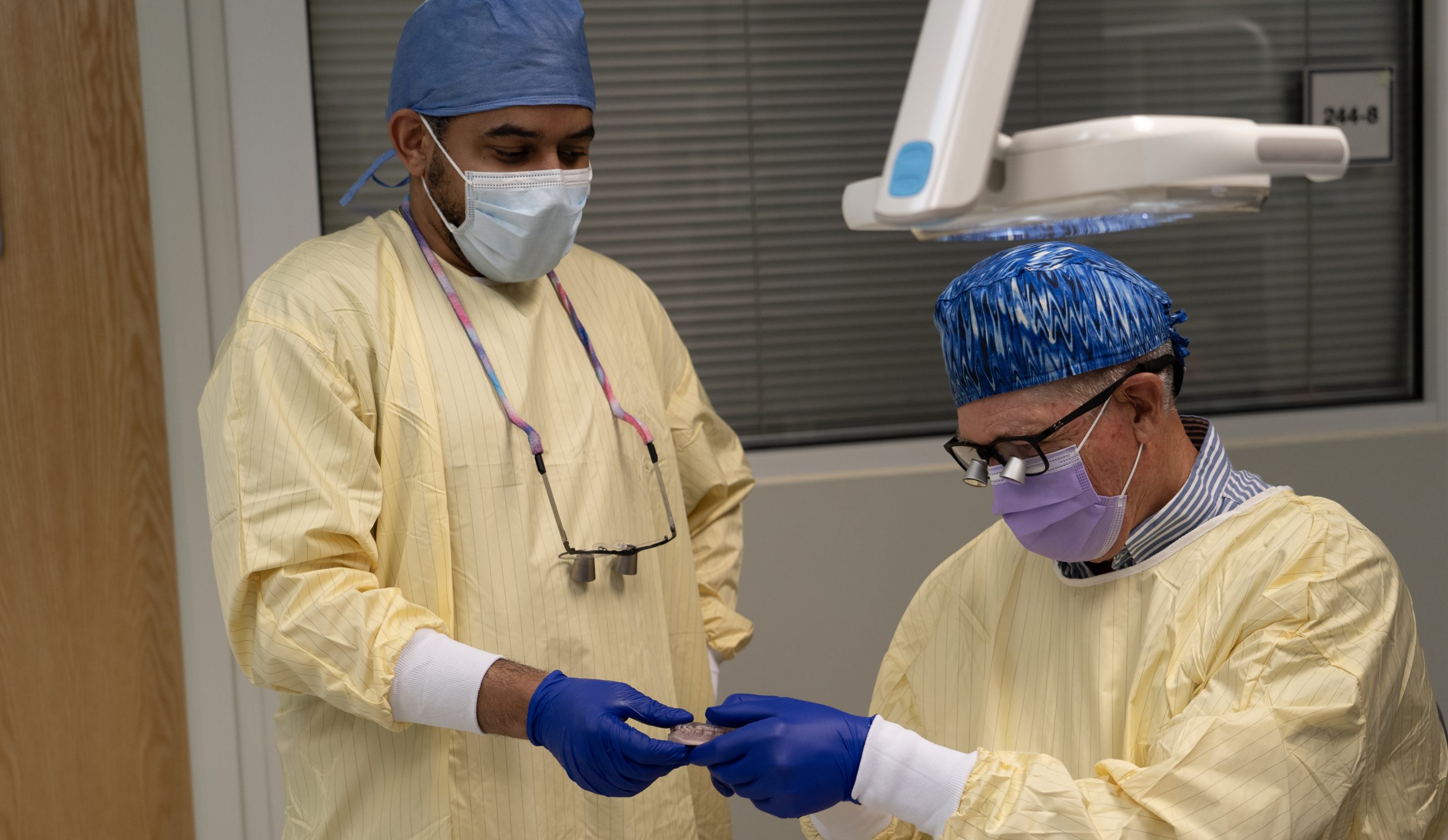Program Overview
Oral and craniofacial biomedicine at UNC-Chapel Hill encompasses the study of the structure and function of normal and abnormal tissues of the oral cavity and craniofacial complex, as well as disease and healing mechanisms specific to various oral conditions.
Attention in dental research and practice is now on the dynamics of oral disease and prevention and treatment at the earliest stages of development, including research on risk factors for disease and cellular and molecular events in disease pathogenesis. Another focus of modern oral and craniofacial biomedicine is the basic, translational, and clinical study of the relationship between oral conditions, health status and systemic disease.
Our curriculum is highly translational in nature; combining basic laboratory discovery in immunology, embryology, physiology, genetics, cellular and molecular biology, neurobiology, tissue engineering and regeneration, pharmacology, microbiology, and biochemistry to aid in our understanding of oral diseases and disorders and ultimately to provide treatment for the pathologies associated with the craniofacial region.
Graduates have the qualifications and research expertise to be productive faculty members at leading universities and senior scientists in academic or industrial settings.
Admissions Information
Applicants interested in a combined program (clinical certificate and PhD) must apply separately to both programs and be independently accepted by both programs. Anyone interested in a combined program should contact the program director prior to applying.
Admission criteria are applied equally to all applicants regardless of race, gender, color, national origin or religion. Minority students are encouraged to apply.
Direct Application to Oral and Craniofacial Biomedicine
Application Deadline: December 12
Applicants with a doctoral or biomedical professional degree, including DDS, DMD, MD or equivalent, who wish to apply for the PhD degree in the curriculum in oral and craniofacial biomedicine should apply directly to the program through the UNC-Chapel Hill Graduate School. Candidates should apply for the fall term.
General questions may be directed to:
UNC-CH Graduate School
200A Bynum Hall
Campus Box #4010
Chapel Hill, NC 27599-4010
Phone: (919) 966-2611
The application fee must be paid in U.S. funds or through an international money order. Application fee waivers are limited to specific categories of applicants. Applications that arrive without the required fee will remain unprocessed, pending receipt of the fee. The Graduate School will send a notification of receipt of the application only after the fee has been paid and the application has been processed.
The GRE is not required.
Application through Biological and Biomedical Sciences Program
Application Deadline: December 4
Individuals (domestic or international) without an advanced professional biomedical degree who wish to apply for the PhD degree in the curriculum in oral and craniofacial biomedicine must apply through the Biological and Biomedical Sciences Program.
International Students
International students are required to take the TOEFL exam, with a minimum of 90 on the internet-based test, or the IELTS with a minimum score of 7.5. The exam score must be less than two years old.
When you register for any tests, you should indicate the University of North Carolina at Chapel Hill Graduate School (institution #5816) as a score recipient. If you did not specify the UNC-Chapel Hill Graduate School as a score recipient at the time of taking the test, you must promptly ask ETS to send your scores to us (institution #5816). No departmental code is required.
Applicants should take the test no later than October to ensure that scores arrive by the application deadline.
When requested to do so by the UNC-Chapel Hill Graduate School, international applicants must submit official academic records bearing the signature of the registrar or another academic official and either a raised or ink stamp or seal of the issuing institution. Records must be issued in the original language and be accompanied by certified English translations. International applicants must also submit verification that the degree has been awarded or a certificate of the degree award.
International applicants seeking admission must complete and upload an international student data form and financial certification worksheet, available here.
Applicants may submit financial certificate documentation at any time during the application process or applicants may wait to upload the documentation until admittance notification is received from the UNC-Chapel Hill Graduate School.
Please note these documents must be received and approved by the International Student and Scholar Services office before visa documents can be prepared.
Students who are not graduates of an ADA-accredited dental school must complete a simulation exam as part of their North Carolina intern permit process. Such candidates must pass and complete the simulation exam within two months of their formal matriculation in the program.
If a candidate does not pass the simulation exam within the two-month interval, he or she cannot advance in the clinical program and will be subject to dismissal from the program.
Curriculum
Click here to view the curriculum.
Didactic Component
Since communication is important for all scientists, the program requires that students participate in discussions of research rotations and dissertation work.
These opportunities include laboratory meetings, journal clubs, weekly student seminar courses, scientific writing courses and public presentations of their research work.
Research Component
Students start laboratory rotations in their first semester to allow maximum time for research involvement.
After the first year of study, students select a mentor and begin selection of a dissertation topic. At the end of their second year, students undergo a candidacy exam, which includes a written research proposal and an oral examination.
Students are required to publish their work in peer-reviewed journals and to present at national and international meetings.



